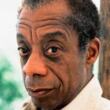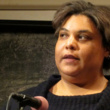How to Slowly Kill Yourself and Others in America: Essays
(Libby/OverDrive eBook)
Available Platforms
Description
More Details
Excerpt
Similar Titles From NoveList
Similar Authors From NoveList
Published Reviews
Booklist Review
As Carnegie Medal winner Laymon (Heavy: An American Memoir, 2018) explains in his author's note, this summer, "the most death-filled summer of our lives," he bought back the rights for this book and his first novel, Long Division, both published in 2013. "Securing the rights to my books, revising them, and publishing them the way they want to be published are the most loving acts I could do for my work, my body, and my Mississippi." Seven essays carried over from the original, plus six new pieces, comprise this new edition, bearing Laymon's belief in "the rugged majesty of revision." The collection opener, "Mississippi: An Awakening, in Days," unfolds in verses tallying the mounting COVID-19 death toll and the growing "awakening led by our young people and old spirits." In ensuing pieces, Laymon is a new professor in his home state, yet feeling far from home; a son emailing with his mother about life and their life's work; an undergrad listening to OutKast's ATLiens, which "instantly changed not just my expectations of music, but my expectations of myself as a young Black Southern artist." Gracefully encompassing pain and power and so much in between, Laymon's artfully piercing essays share truth without limit, and could not feel more timely.
Library Journal Review
Carnegie Medal winner Laymon writes about being a Black man in Mississippi in this essay collection (a reissue of the 2013 edition, now with six new essays).
Kirkus Book Review
Potent essays on the toxicity of racism. Revised and expanded from its original publication in 2013, this collection of forthright, spirited essays (six are new) moves back and forth among Jackson, Mississippi, where Laymon was born and grew up; Oberlin, where he completed college; Indiana, where he was awarded a fellowship in the creative writing program; Poughkeepsie, New York, where, for 14 years, he taught at Vassar; and Oxford, Mississippi, where he became the Grisham Writer in Residence at the University of Mississippi and where he now teaches. Taking varied forms, such as emails and letters, the collection, occasionally uneven, is never less than impassioned on matters of race, identity, and injustice. "I am a Black Mississippian," Laymon declares. "I am a Black American. I pledge to never be passive, patriotic, or grateful in the face of American abuse. I pledge to always thoughtfully bite the self-righteous American hand that thinks it's feeding us." The author also pays homage to the "weird women warriors" who raised him: his grandmother, who buoyed his faith in himself, and his mother, who drilled into him "to never ever forget I was born on parole, which means no black hoodies in wrong neighborhoods, no jogging at night, hands in plain sight at all times in public, no intimate relationships with white women, never driving over the speed limit," and, most crucially, "always remembering that no matter what, the worst of white folks will do anything to get you." As a beginning writer, Laymon became disillusioned after an editor insisted that "Real Black writers make the racial, class, gender, and sexual politics of their work implicit. Very implicit. The age of the 'race narrative' is over, bro." Determined to prove him wrong, the author makes these themes undeniably explicit, arguing for a culture that achieves what a professor acquaintance called "a principled and sustainable paradigm shift and nothing less." Read this one, and then go back to Laymon's remarkable memoir, Heavy. A timely and disquieting contribution to urgent conversations about race. Copyright (c) Kirkus Reviews, used with permission.
Booklist Reviews
*Starred Review* As Carnegie Medal winner Laymon (Heavy: An American Memoir, 2018) explains in his author's note, this summer, the most death-filled summer of our lives, he bought back the rights for this book and his first novel, Long Division, both published in 2013. "Securing the rights to my books, revising them, and publishing them the way they want to be published are the most loving acts I could do for my work, my body, and my Mississippi." Seven essays carried over from the original, plus six new pieces, comprise this new edition, bearing Laymon's belief in "the rugged majesty of revision." The collection opener, Mississippi: An Awakening, in Days, unfolds in verses tallying the mounting COVID-19 death toll and the growing "awakening led by our young people and old spirits." In ensuing pieces, Laymon is a new professor in his home state, yet feeling far from home; a son emailing with his mother about life and their life's work; an undergrad listening to OutKast's ATLiens, which "instantly changed not just my expectations of music, but my expectations of myself as a young Black Southern artist." Gracefully encompassing pain and power and so much in between, Laymon's artfully piercing essays share truth without limit, and could not feel more timely. Copyright 2020 Booklist Reviews.
Library Journal Reviews
Award-winning author Laymon (English, Univ. of Mississippi; Long Division) updates the previous edition of this profound work with reflections on being a Black man in America and living, in his words, like you're always on parole. For him, this means the constant fear of being pulled over, handcuffed, and having guns drawn on him—all of which Laymon has experienced, and he shares those transformative moments in piercing prose. "I am not afraid of death. I am afraid of being killed while dreaming." Taking us from past to present, the author tells of his childhood in Jackson, MS, and challenges the meanings of freedom and courage, especially living in a society where Black men are seen as a threat. Laymon brings vulnerability to each page, whether talking about the influence of OutKast and Southern hip-hop on his life, being told that he's not like other Black people, or battling personal demons on the path to becoming a published writer. While the book is strong as a whole, recollections of his Mama and Grandmama, who wanted better for him, are especially poignant. VERDICT Moving and meditative, this reckoning on Blackness, manhood, and self adds to Laymon's legacy as an influential writer.—Stephanie Sendaula, Library Journal
Copyright 2020 Library Journal.Library Journal Reviews
Carnegie Medal winner Laymon writes about being a Black man in Mississippi in this essay collection (a reissue of the 2013 edition, now with six new essays).
Copyright 2021 Library Journal.Reviews from GoodReads
Citations
Laymon, K. (2013). How to Slowly Kill Yourself and Others in America: Essays . Agate Publishing.
Chicago / Turabian - Author Date Citation, 17th Edition (style guide)Laymon, Kiese. 2013. How to Slowly Kill Yourself and Others in America: Essays. Agate Publishing.
Chicago / Turabian - Humanities (Notes and Bibliography) Citation, 17th Edition (style guide)Laymon, Kiese. How to Slowly Kill Yourself and Others in America: Essays Agate Publishing, 2013.
Harvard Citation (style guide)Laymon, K. (2013). How to slowly kill yourself and others in america: essays. Agate Publishing.
MLA Citation, 9th Edition (style guide)Laymon, Kiese. How to Slowly Kill Yourself and Others in America: Essays Agate Publishing, 2013.
Copy Details
| Collection | Owned | Available | Number of Holds |
|---|---|---|---|
| Libby | 1 | 1 | 0 |


































